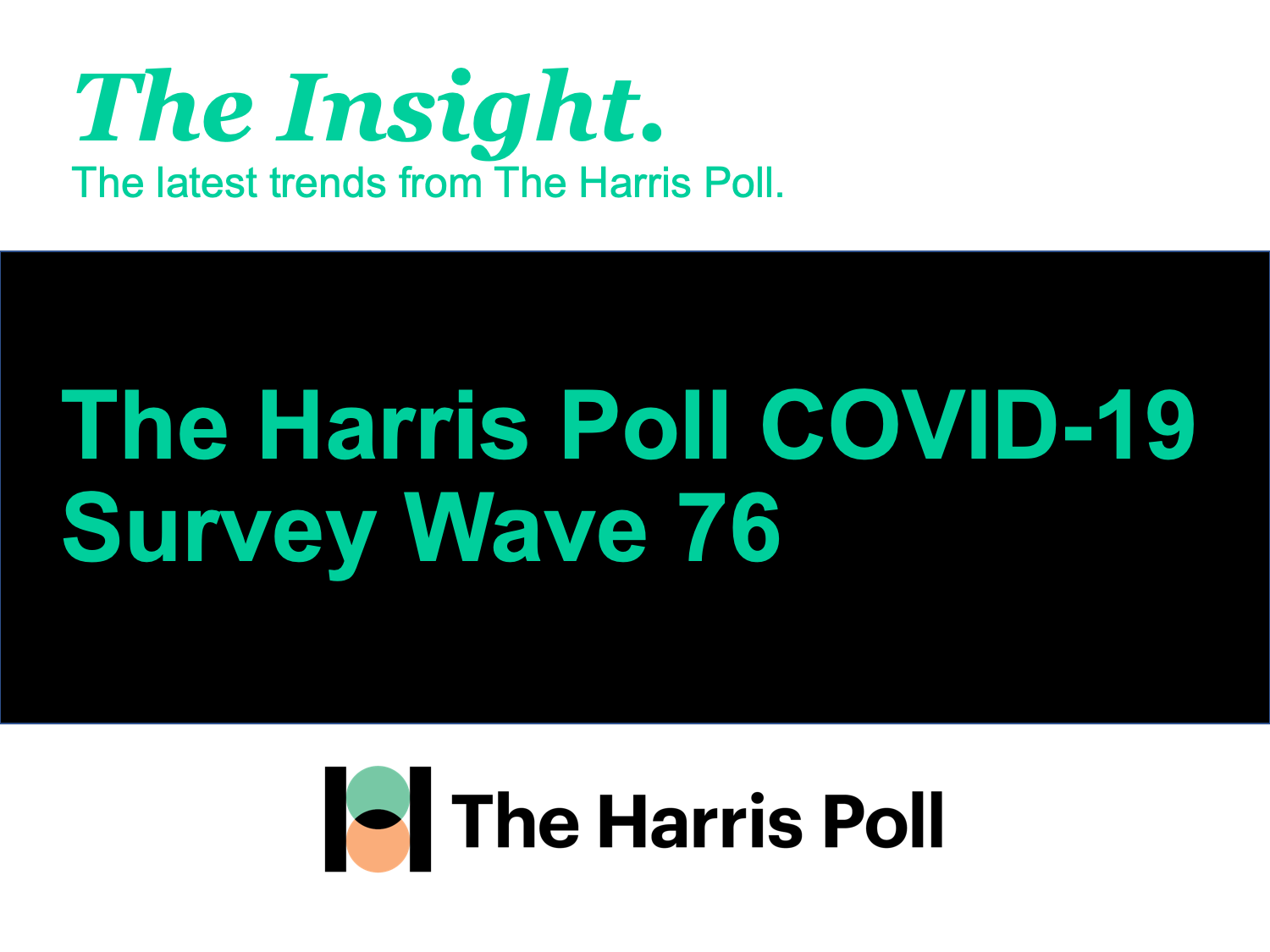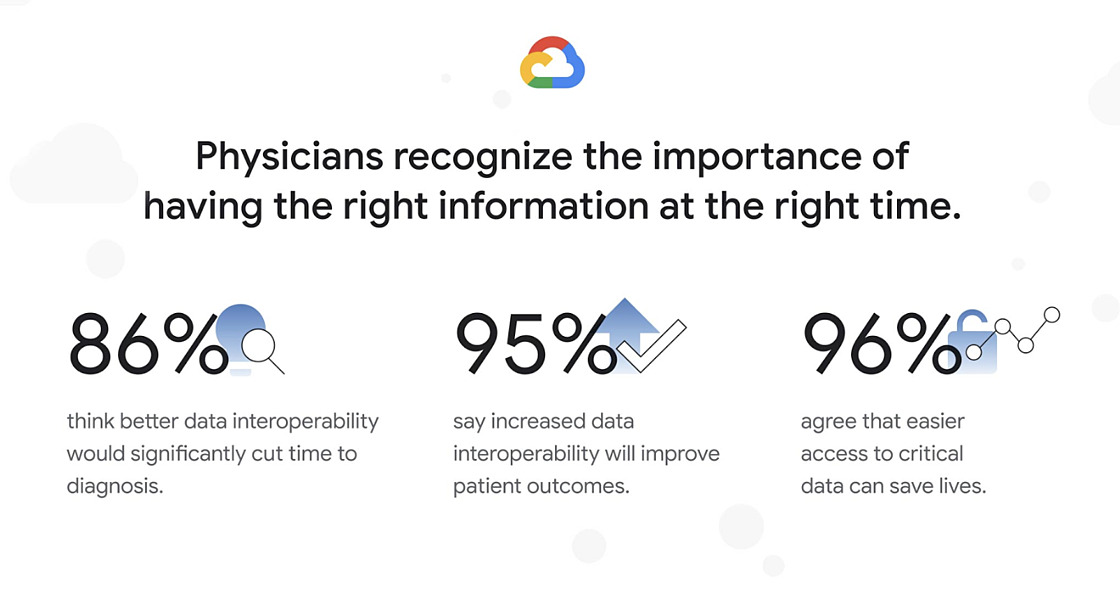Brief • 4 min Read

In The Harris Poll Tracker (Week 76) fielded August 6th to 8th, 2021 among 2,080 U.S. adults, we look at the expectations of the vaccinated during the current Delta surge, COVID’s continued impact on travel, the road to recovery for small businesses, the emergence of hard seltzers, and the tech silver lining of the pandemic.
As a public service, our team has curated key insights to help leaders navigate COVID-19. Full survey results, tables, and weekly summaries can be accessed for free at The Harris Poll COVID-19 Portal. We will continue to actively field on a regular cadence to track the shifts in sentiment and behaviors as the news and guidelines evolve.
Great Expectations
Recently, the CDC warned of “a pandemic of the unvaccinated” amid the Delta variant outbreak. But given that vaccinated people are still able to catch – and spread – the virus, what level of precaution should vaccinated Americans be taking? We look at the growing tension regarding the expectations of vaccinated people in helping to curb the outbreak. Here’s what we found:
- Vaccinated mindsets towards Delta: Just over half (53%) of vaccinated Americans say they are “extremely concerned about the Delta variant outbreak, we opened too fast and should bring back restrictions such as capacity limits and mask mandates,” meanwhile (35%) say they are “mildly concerned but bringing back restrictions is unfair, and I don’t plan to majorly change my day to day behavior,” and (11%) are “not at all concerned, it’s time to move on.”
- Despite being the most vulnerable to COVID, the numbers for the unvaccinated tell a different story – (39%) are extremely concerned, (35%) mildly, and (26%) are not at all concerned.
- Vaccinated and vigilant: Two-thirds (68%) of those vaccinated are aware that they can still contract and spread COVID, so they should take precautions – while a similar number of unvaccinated Americans (70%) support this sentiment.
- Split on how to feel: Over half of vaccinated Americans (57%) say they are largely protected from COVID and have done their part and should be able to enjoy big events again without feeling guilty, but at the same time (43%) of vaccinated people say it is irresponsible for them to attend large events given they can still spread the virus.
- Where to draw the line: While both agree it’s acceptable for fully vaccinated people to dine indoors (75% vaccinated, 74% unvaccinated), less (56%) of vaccinated Americans say it’s acceptable for them to attend a major music festival – while the unvaccinated take a more lax approach with (63%) saying it’s okay.
Takeaway: Vaccinated Americans are trying to navigate the social pressure of being cautious amidst the pandemic while enjoying themselves now that they are (mostly) protected. But it is becoming increasingly difficult to balance risk vs. reward given the rise of cases and hospitalizations among children who are not yet eligible to receive the vaccine.
Americans Are Rethinking Travel Plans To High-Covid U.S. Destinations: Forbes-Harris Poll
In our latest survey shared exclusively with Forbes, we look at how travel plans are being impacted by local COVID rates with the Delta variant surging. Here’s what we found:
- Nearly three-quarters (72%) of Americans say they are checking COVID case numbers for their destinations before they go. A full half (50%) of Americans say they would definitely check prior to departure and (22%) say they would probably check.
- If they had a vacation planned to an area of the country that was experiencing a COVID surge, over half of Americans say they would either postpone the trip until it felt safe (29%) or cancel entirely (22%).
- When asked whether it is generally safe to travel domestically, nearly half of Americans (49%) say it’s only safe for individuals who are fully vaccinated. That’s twice as many who think it’s safe regardless of vaccination status (25%), while one-quarter think travel in the U.S. is unsafe at this time (17%).
Takeaway: Outbreaks in regions with low vaccination rates will continue to deter travelers and jeopardize local events, hurting local economies in the short-term: the legendary New Orleans Jazz Fest was cancelled this fall amid Louisiana seeing some of the highest hospitalization rates in the country.
Onward and Upward: Insights From Small Business and the Road to Recovery
While the pandemic continues to be with us, small and medium-sized businesses (SMBs) that survived the initial surge of the pandemic are fighting their way back. Our recent survey found that SMBs have learned the lessons of resilience and have emerged as stronger businesses.
- The future is bright: Three in 4 (75%) anticipate that their business will be back to normal in 6 months or less and (58%) plan to hire new employees.
- An acceleration of innovation: While innovation may have been forced by circumstances, nearly 9 in 10 SMBs say the pandemic created increased enthusiasm for innovation and a majority of SMBs (89%) find virtual learning to be effective in helping employees acquire new skills.
- Back to work: A majority of SMBs appear to support employees taking steps to fight future pandemics by getting vaccinated (79%), and at the same time, just as many support the end of government restrictions related to COVID-19 (78%).
- Aggressive infrastructure investments: On top of facilitating remote work through the cloud, many SMBs have also made or plan to make additional investments in technology, mainly around hardware devices and digital productivity tools.

Takeaway: The question now is: how can organizations that serve SMBs continue to step up to the plate and support this backbone of the American economy? Securing a comprehensive understanding of detailed needs will enable a mutually productive relationship that extends beyond this challenging time.
The Rise of Hard Seltzer
Alcohol consumption has increased during the pandemic, and those who drink plan to continue COVID-level consumption even after things are fully normal. As part of Harris Brand Platform’s research, we took a closer look at the emergence and popularity of hard seltzer brands.
- The new trend is female driven: At least 1 in 5 Americans consume spiked soft drinks, such as hard lemonade (22%), hard seltzer (20%), and hard cider (19%), with the typical drinker being young (under 44-years-old; 68%) and female (54%).
- Hard seltzer is about to have its moment: During the pandemic, spiked seltzer drinkers have increased their alcohol consumption at a higher rate than all alcohol drinkers (39% vs. 24%).
- Casual & Convenient: Part of what sets hard seltzer drinkers apart is the relatively casual and low-key surroundings in which they are consumed, including watching TV or a movie (69%), having a meal at home (63%), and during outdoor activities like camping or going to the beach (56%).
- Hard seltzer wars: When looking at the major spiked seltzer producers, there are some clear favorites. Brands with a higher lift have successfully built equity and buzz with alcohol drinkers — likely resonating with their preferences for low-key fun, nonchalance and convenience.

Takeaway: Six in 10 (61%) consumers expect to increase their consumption post-COVID restrictions being lifted and another (15%) expect to increase their consumption level — meaning the market is likely to grow even more competitive in the months to come.
The Technology Upside From the Coronavirus Pandemic: Google Cloud-Harris Poll
While health care has typically moved at a cautious pace when it comes to adopting new tech, COVID spurred a digital transformation. Axios writes more about our latest findings from our survey in partnership with Google Cloud:
- Six in 10 (62%) doctors said the pandemic forced technology upgrades that normally would have taken years.
- And more than half said the industry lags behind the gaming (64%), telecommunication (56%), and financial service (53%) industries when it comes to digital adoption.
- However, telehealth adoption was one of the biggest changes, with its use jumping from (32%) in February 2020 to (90%) in June 2021.
- Other key findings: (92%) believe technology can have a positive impact on improving patient experiences, (94%) favor increased data interoperability at their healthcare organization, and (91%) wish their healthcare organization operated more efficiently to free up their time for more personalized care.

Takeaway: The COVID-19 pandemic highlighted what we already knew: doctor’s offices are behind in technology, preventing them from being able to dedicate proper time to their patients. Healthcare organizations need to ensure they are implementing the right technology to enhance data interoperability to better serve patients.
Subscribe for more Insights
Subscribe to our newsletter for the latest trends in business, politics, culture, and more.
Download the Data
This survey was conducted online within the U.S. by The Harris Poll from August 6 to 8, among a nationally representative sample of 2,080 U.S. adults.
Download
Subscribe for more Insights
Subscribe to our newsletter for the latest trends in business, politics, culture, and more.
Download the Data
This survey was conducted online within the U.S. by The Harris Poll from August 6 to 8, among a nationally representative sample of 2,080 U.S. adults.
DownloadRelated Content








